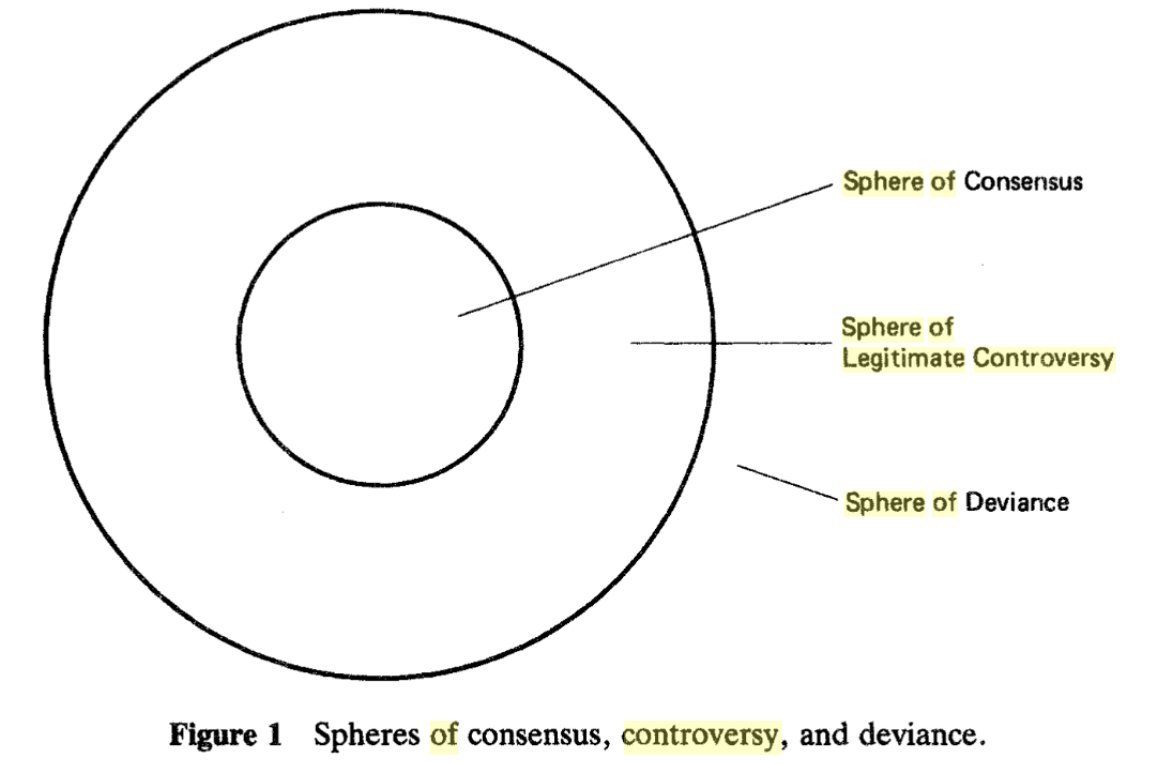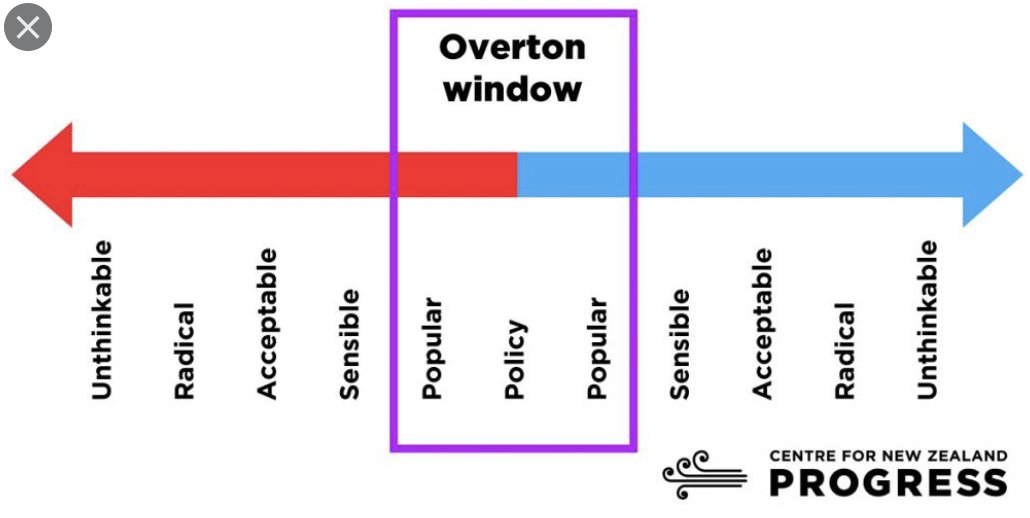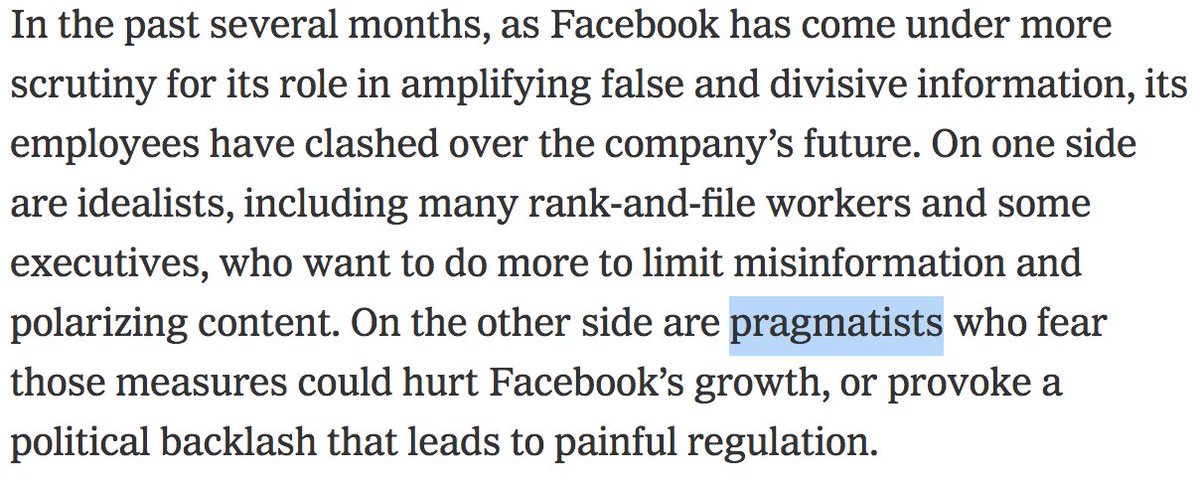
As part of my own look back at 2020, I want to share these thoughts about an essay I wrote twelve years ago, in which I got some things right and one thing — a big thing — disastrously wrong. If authors getting big stuff wrong interests you, then this thread might too. 1/
In January of 2009, I published at my site: "Audience Atomization Overcome: Why the Internet Weakens the Authority of the Press." archive.pressthink.org/2009/01/12/ato… It was one of my most successful posts. But it had a flaw that I now consider fatal. This thread is the story of that flaw. 2/
Most of that 2009 post was my attempt to introduce a different way of thinking about the political influence of journalists, beyond critiques of bias and constructs like "working the refs." I found it in a simple diagram from media scholar @danielchallin. Here's a screenshot. 3/ 

Hallin proposed that we think about the political influence of journalists by imagining three spheres: the sphere of consensus (core beliefs that make us one society), of legitimate controversy (things we disagree on and argue about), and of deviance (what is beyond the pale.) 4/
The sphere of legitimate debate is familiar terrain for journalists. It is where most their work takes place. In the sphere of deviance, says Hallin, are “political actors and views which journalists and the political mainstream of society reject as unworthy of being heard.” 5/
In the sphere of consensus we find propositions so widely-held they’re almost universal. Here, Hallin writes, “journalists do not feel compelled either to present opposing views or to remain disinterested observers.” Respect for the Constitution would be a simple example. 6/
As I wrote in 2009: "The three spheres are not really separate; they create one another, like the public and private do. The boundaries between regions are semi-porous and impermanent. Things can move out of one sphere and into another." archive.pressthink.org/2009/01/12/ato… 7/
Hallin's model opened space for critique. Journalists are not only gate-keepers, but sphere-sorters. Part of their power is to police the boundaries between the spheres of deviance and legitimate debate. By what principles are they guided in use of this power? Good question! 8/
Simple example: booking guests on the Sunday shows. As I put it in 2009, "One day David Brody of Christian Broadcasting Network shows up on Meet the Press, but Amy Goodman of Democracy Now never does." His vision of the country is admitted to the sphere of debate. Hers is not. 9/
"These decisions are often invisible to the people making them, and so we cannot argue with those people. It’s like trying to complain to your kid’s teacher about the values the child is learning in school when the teacher insists that the school does not teach values." 10/
So far, so good. "Hallin's spheres" took off as a tool of criticism. They have a Wikipedia entry now: en.wikipedia.org/wiki/Hallin%27… It covers some of the same ground as the better-known Overton Window, but the circular model with "consensus" as the donut hole is its own imaginary. 11/ 

Now recall the title of my 2009 post that has a fatal flaw: "Audience Atomization Overcome: Why the Internet Weakens the Authority of the Press." I was trying for more than an introduction to Hallin's ideas. I wanted to isolate something the internet was doing to journalism. 12/
"Audience atomization" was my two-word term for a fact about mass media that was easy to overlook until the internet changed it: In the broadcasting era, people were connected "up" to the media — to the White House, to the Oscars, to the NFL — but not "across" to each other. 13/
A "mass" audience was made from atomized listeners, viewers, readers. They were connected vertically to power centers and media spectacles but disconnected horizontally. And not only that. Before the internet the tools of media production were in the hands of... the media. 14/
Thus: "In the age of mass media, the press was able to define the sphere of legitimate debate with relative ease because the people on the receiving end were atomized." And, equally important, they were without the tools needed to self-publish and share. 15/
But now we had the internet. Especially with social media, audience atomization had been overcome. People were connected to each other AND to the media. They could pool their frustrations, criticize the calls journalists made, and make their own: what's in bounds, what's out. 16/
Now comes the part I regret.
"Today one of the biggest factors changing our world is the falling cost for like-minded people to locate each other, share information, trade impressions and realize their number."
At the time, I did not realize the significance of these words. 17/
"Today one of the biggest factors changing our world is the falling cost for like-minded people to locate each other, share information, trade impressions and realize their number."
At the time, I did not realize the significance of these words. 17/
I was thinking of all the ways the internet empowered people to inform themselves. We have a phrase for it now, which has in recent years taken a dark turn: "do your own research." I had in mind patients with a rare ailment who find others, share treatments, pool knowledge... 18/
Thus, the falling cost for like-minded people to locate each other, share information, and realize their number. "Among the first things they may do is establish that the 'sphere of legitimate debate' as defined by journalists doesn’t match up with their own definition." 19/
I saw this as a good thing— challenging for the press, but the press needed to be challenged... right?
Well, yes. But — and this is obvious — the falling cost for like-minded people to locate each other permits not only the criticism, but the utter rejection of journalism. 20/
Well, yes. But — and this is obvious — the falling cost for like-minded people to locate each other permits not only the criticism, but the utter rejection of journalism. 20/
The falling cost for like-minded people to locate each other makes possible the mass delusion known as QAnon.
It enables the Trump cult to detach itself from anything verifiable and spin off into resentment space.
It's sustaining the "stop the steal" movement right now.
21/
It enables the Trump cult to detach itself from anything verifiable and spin off into resentment space.
It's sustaining the "stop the steal" movement right now.
21/
The falling cost for like-minded people to locate each other and share their truth is an integral part of a bewildering fact: today realism counsels us not to assign too much power to reality.
In 2009 I didn't see that coming. But I could have. It's a big thing I got wrong. 22/
In 2009 I didn't see that coming. But I could have. It's a big thing I got wrong. 22/
I know what some of you are thinking at this point: "Jay, you're just realizing this NOW?"
No. That moment came years ago. I am writing it down and sharing it now because at the end of a brutal year I don't feel like celebrating.
23/
No. That moment came years ago. I am writing it down and sharing it now because at the end of a brutal year I don't feel like celebrating.
23/
In my favorite scene from the movie "Spotlight," Liev Schreiber says:
"Sometimes it’s easy to forget that we spend most of our time stumbling around in the dark. Suddenly a light gets turned on, and there’s a fair share of blame to go around."
*Raises hand*
24/ END
"Sometimes it’s easy to forget that we spend most of our time stumbling around in the dark. Suddenly a light gets turned on, and there’s a fair share of blame to go around."
*Raises hand*
24/ END
As a coda to this thread (and thanks for all your comments) much of what I wrote here resulted from my two years of struggle with a single text: @zephoria's lecture, "You Think You Want Media Literacy… Do You?" points.datasociety.net/you-think-you-… Cheers.
• • •
Missing some Tweet in this thread? You can try to
force a refresh



